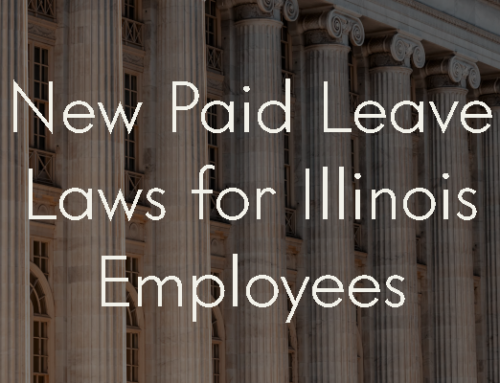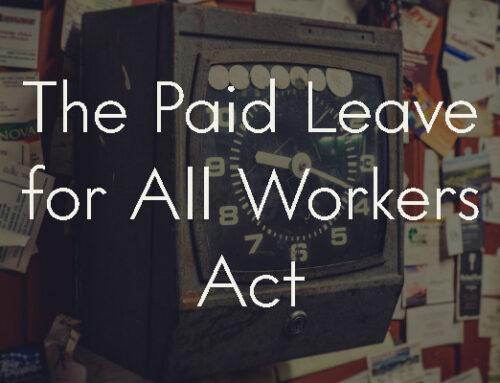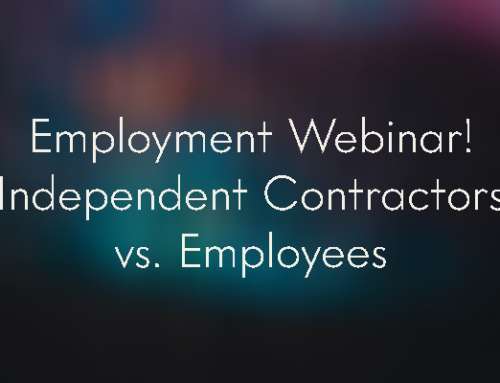Disclaimer: We are not experts in health or policy and make no guarantees as to the accuracy or timeliness of the details on this page. This page is for informational purposes only. See our full COVID-19 disclaimer for more.
If your business has hit trouble because of the pandemic and you need guidance, the attorneys at G & G Law have assembled a toolkit of accessible, easy-to-digest information that answers many common questions we’ve received from our clients. You can read more about it and purchase it here.
This information was retrieved directly from the Illinois Department of Employment Security (IDES) on March 17th, 2020
“Unemployment benefits may be available to some individuals whose unemployment is attributable to COVID-19. IDES recently adopted emergency rules to try to make the unemployment insurance system as responsive to the current situation as possible.
What is Unemployment Insurance (UI)?
In general, UI provides temporary income maintenance to individuals who have been separated from employment through no fault of their own and who meet all eligibility requirements, including the requirements that they be able and available for work, register with the state employment service and actively seek work. Click here for more information.
What determines if I’m able to work?
An individual is considered able to work if he or she is mentally and physically capable of performing a job for which a labor market exists.
What determines if I’m available for work?
To be considered available for work, an individual cannot impose conditions on the acceptance of work if those conditions essentially leave him or her with no reasonable prospect of work.
What determines if I’m actively seeking work?
An individual is considered to be actively seeking work if he or she is making an effort that is reasonably calculated to return the individual to work.
What if I‘m temporarily laid off because the place where I work is temporarily closed because of the COVID-19 virus?
An individual temporarily laid off in this situation could qualify for benefits as long as he or she was able and available for and actively seeking work. Under emergency rules IDES recently adopted, the individual would not have to register with the employment service. He or she would be considered to be actively seeking work as long as the individual was prepared to return to his or her job as soon the employer reopened.
What if I quit my job because I am generally concerned over the COVID-19 virus?
An individual who leaves work voluntarily without a good reason attributable to the employer is generally disqualified from receiving UI. The eligibility of an individual in this situation will depend on whether the facts of his or her case demonstrate the individual had a good reason for quitting and that the reason was attributable to the employer. An individual generally has a duty to make a reasonable effort to work with his or her employer to resolve whatever issues have caused the individual to consider quitting.
What if I’m confined to my home 1) because a medical professional has diagnosed me as having COVID-19 or 2) because I must stay home to care for my spouse, parent or child, whom a medical professional has diagnosed as having COVID-19 or 3) because of a government-imposed or government-recommended quarantine?
An individual in any of those situations would be considered to be unemployed through no fault of his or her own. However, to qualify for UI, he or she would still need to meet all other eligibility requirements, including the requirements that the individual be able and available for work, registered with the state employment service and actively seeking work from the confines of his or her home. The individual would be considered able and available for work if there was some work that he or she could perform from home (e.g., transcribing, data entry, virtual assistant services) and there is a labor market for that work.
What if I leave work because my child’s school has temporarily closed, and I feel I have to stay home with the child?
An individual who leaves work voluntarily without a good reason attributable to the employer is generally disqualified from receiving UI. The reason the individual in this situation left work would not be considered attributable to the employer. Consequently, the individual would likely not qualify for UI.
I have exhausted my rights to UI. Will additional benefits be available because of the COVID-19 situation?
At this point, no additional UI is available to individuals who have already received the full 26 weeks’ worth of benefits for their current benefit years.
For Employers:
If an employee receives unemployment benefits as a result of COVID-19, will the employer’s unemployment contribution rate increase?
At this time, no further guidance has been issued. Until such time, normal procedures will be followed. In general, the contribution rate of an experience rated employer is based, in part, on the amount of unemployment benefits paid to the employer’s former employees.
Potential Closure or Layoff
Rapid Response Services are available to employers who are planning or have gone through a permanent closure or mass layoff at a plant, facility, or enterprise, or a natural or other disaster, that results in mass job dislocation. The State Dislocated Worker Unit coordinates with employers to provide on-site information to workers and employers about employment and retraining services designed to help participants retain employment when feasible, or obtain re-employment as soon as possible. For more information, visit Rapid Response Services for Businesses or contact your local Illinois workNet Center. ”
Accurate as of March 23rd, 2020. We make no guarantee of the timeliness or accuracy of the information in this post.
Unfortunately, we’ve heard that the IDES is not likely to answer the phone at all during this time. However, we’ve put together some resources to answer common unemployment questions during the Coronavirus crisis:
- COVID-19 Employer Questions: Unemployment
- Collecting Unemployment Insurance Benefits during the COVID-19 Crisis [Guest Post]





